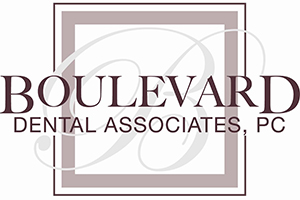
February is National Children’s Dental Health Month, and Dr. Medianick would like to take this opportunity to answer some of the most common questions parents ask about their children’s dental care. From teething, to the timing of the first dental visit, to early cavity formation, early hygiene, sealants, and orthodontic treatment—he covers it!
What are the signs that my child is starting to teeth?
The signs of teething are usually obvious. Babies will start to drool and they might have swollen and sensitive gums. Many times, they will be fussy and have trouble sleeping. They might also experience a low-grade fever.
What can I do for my child when they are teething?
When babies start to teeth, they will want to chew on anything they can find. Teething rings and toys are a good choice as well as hard, unsweetened teething crackers. Always look for items that are specifically approved for teething.
How early should my child start to see a dentist?
It is common for parents to ask me, “How soon should I take my child to the dentist?” According to the American Association of Pediatric Dentists, it’s recommended that children go for their first dental checkup when their baby teeth first begin to come in or by their first birthday. Though it may seem early, this visit helps evaluate for signs of gum issues or tooth decay and to ensure your child’s teeth are erupting and developing properly. This appointment is also helpful for parent education. We can make you aware of what to expect and what is the best home care for your child.
How early can cavities develop?
Cavities can develop very early. As soon as your child’s tooth erupts, it has the potential for a cavity. Tooth decay is the most common childhood disease, and it is almost always preventable. Often, kids will come in for their first appointment at four or five years old with cavities and tooth decay that could have been prevented with an earlier routine checkup. That’s why it’s so important to start them early!
Can early cavities be very detrimental for my child’s future?
Untreated cavities can cause pain and infections that may lead to problems with eating, speaking, playing, and learning.
How should I care for my baby’s teeth at home?
Brush your baby’s teeth with a toothbrush appropriate to their age. Use water and a tiny bit of child’s toothpaste. When your baby’s teeth touch, you can begin flossing between them. Always floss first before brushing!
What kinds of drinks should my baby and child avoid?
Drinks that contain added sugars, such as 100% fruit juice, sodas, iced tea, and lemonade can be harmful to children’s teeth and their overall health. Avoid putting your baby to sleep with the milk bottle or baby formula, especially when their teeth start to erupt. That can often lead to tooth decay. Instead, teach your baby to go to sleep with a water bottle.
How long should I floss/brush my child’s teeth for them?
Often children will want to brush and floss their teeth on their own. You should encourage them to do so, but you always want to brush (for two minutes) and floss their teeth afterwards because young children do not have good dexterity. Once your child’s teeth touch, you want to floss them, as these inner surfaces are hard to reach with a toothbrush alone. Flossers work quite well with children. Until then, space between baby teeth is good, as it allows saliva to wash away food particles.
Why are sealants helpful and when should my child get them?
The most important reason for getting sealants is to avoid tooth decay on the chewing surfaces of your child’s teeth. Fluoride in toothpaste and in drinking water protects the smooth surfaces of the teeth, but back teeth need extra protection. Sealants cover the chewing surfaces of the back teeth and keep out germs and food. Your child’s first molars break through around age six, while second molars appear around age twelve. We recommend sealing these back teeth at these ages or as soon as these molars come through to protect them from tooth decay.
When should my child be evaluated for possible orthodontic treatment?
The American Association of Orthodontists recommends that as a general rule of thumb your child should be evaluated by an orthodontist between the ages of seven to eight years old. This may seem early, but problems like jaw alignment and crowding can be identified and prevented earlier.
Dr. Medianick knows that so much can be done to prevent potential dental problems in children. His desire is that his answers to parents’ common dental questions will help to prevent unwanted dental consequences for both you and your child!
